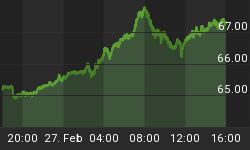The ratio of share sales to share purchases by US insiders shot way into bear territory at the height of the stock market rally in the US stock market during April.
The net sales spike was much higher than at any time in the past year.
As of late that ratio has fallen back into a neutral range. How should that be read? Did the insiders see buyers overpaying for their company shares? Did the insiders want out while the getting out was good? Did the insiders decide they themselves were wrong and then reduce selling as the rally continued? Did they reduce net selling, because they had satiated their desire to have less portfolio exposure to their own companies?
The spike phenomenon of insider selling was dramatic and counter rally, but short-lived. We are forewarned by somewhat uncertain what to make of it, except to believe that if executives believed their companies were off to a new bull market, they would be buying, not selling.
We haven't looked into it yet, but we suspect a large dose of the sellers were banking executives who are not wholly confident that investor enthusiasm for banks will persist in the near-term.
from Barron's Market Lab
















